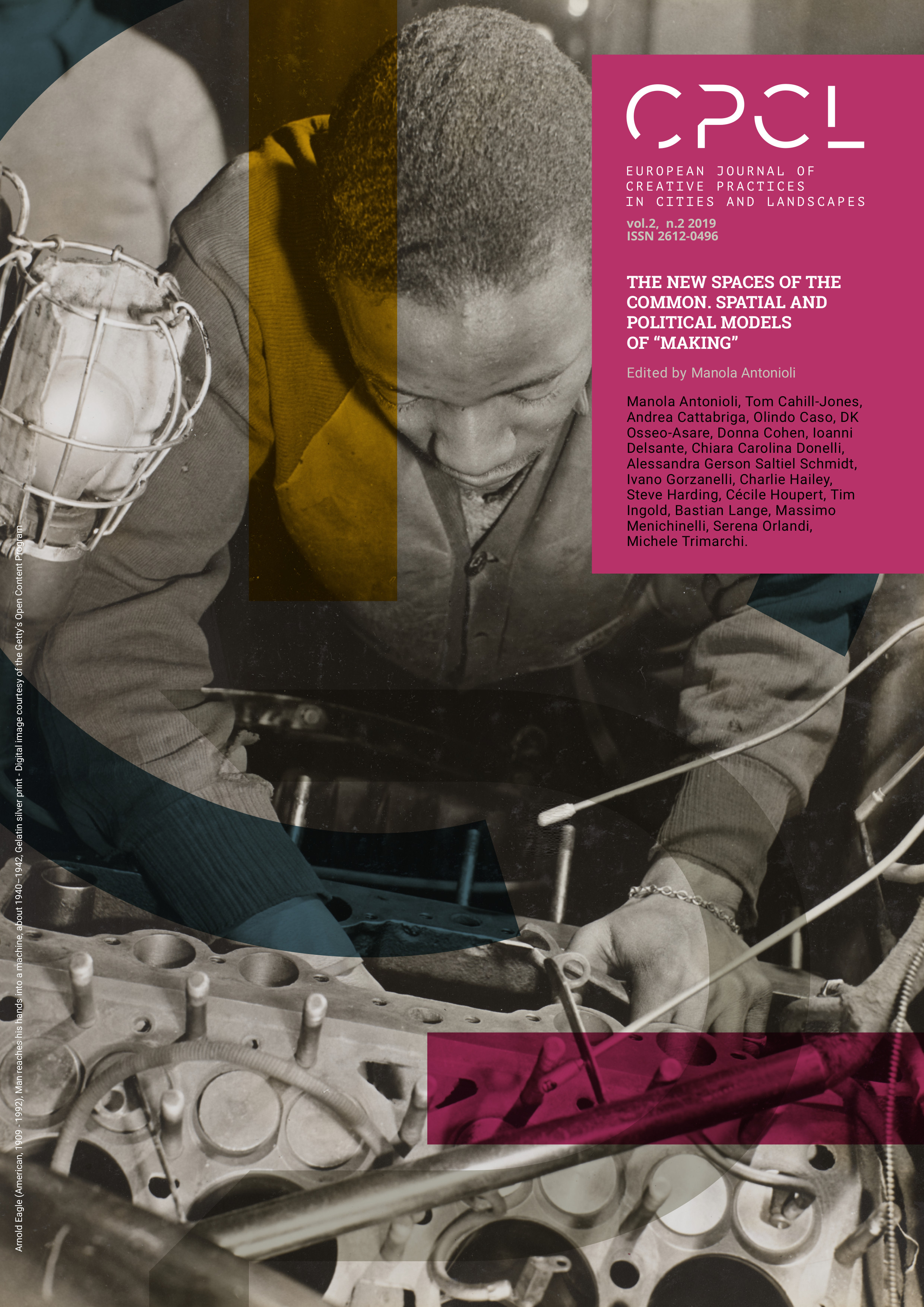Making with Repurpose: Finding Architectural Value between Waste and Landfill
DOI:
https://doi.org/10.6092/issn.2612-0496/9554Keywords:
architecture, design/build, pedagogy, making, technology/scienceAbstract
This project rethinks architectural work in the context of waste. Fourth-year students designed and built a mobile maker-space at the Repurpose Project, a last stop for cast-off materials before the landfill. This essay argues that the material ecologies found in such places provide a critical context for understanding architectural work as a collective body of knowledge and practical know-how. The rejected and scrapped materials themselves had agency, carrying legacies and future potentialities, not just for the project but also for the larger collaborative project of evaluating and addressing work and waste in and out of academia and the architectural profession. Building the maker-space recast the process of making as a series of critical ecological acts and explored the Repurpose Project model as a knowledge commons for alternative architectural practices.References
Bennett, Jane. Vibrant Matter. Durham and London: Duke University Press, 2010.
Douglas, Mary. Purity and Danger: An Analysis of the Concepts of Pollution and Taboo. London: Routledge Press, 1966.
Eglash, Ron and Ellen Foster. "On the Politics of Generative Justice: African Traditions and Maker Communities," in What Do Science, Technology, and Innovation Mean from Africa, ed. C. Mavhunga. Cambridge, MIT Press, 2017.
Latour, Bruno. We Have Never Been Modern. Cambridge: Harvard University Press, 1993.
Reno, Joshua. “Toward a New Theory of Waste,” Theory, Culture and Society 31 no. 6 (2014): 3-27.
Reno, Joshua. “Your Trash is Someone Else’s Treasure: the politics of value at a Michigan Landfill,” Journal of Material Culture 14, no. 1 (2009): 26-49.
Stevens, Wallace. Opus Posthumous. New York: Vintage, 1990.
Stevens, Wallace. The Collected Poems. New York: Knopf, 1990.
Published
How to Cite
Issue
Section
License
Copyright (c) 2019 Donna Cohen, Charlie Hailey, DK Osseo-Asare
Copyrights and publishing rights of all the texts on this journal belong to the respective authors without restrictions.This journal is licensed under a Creative Commons Attribution 4.0 International License (full legal code).
See also our Open Access Policy.





